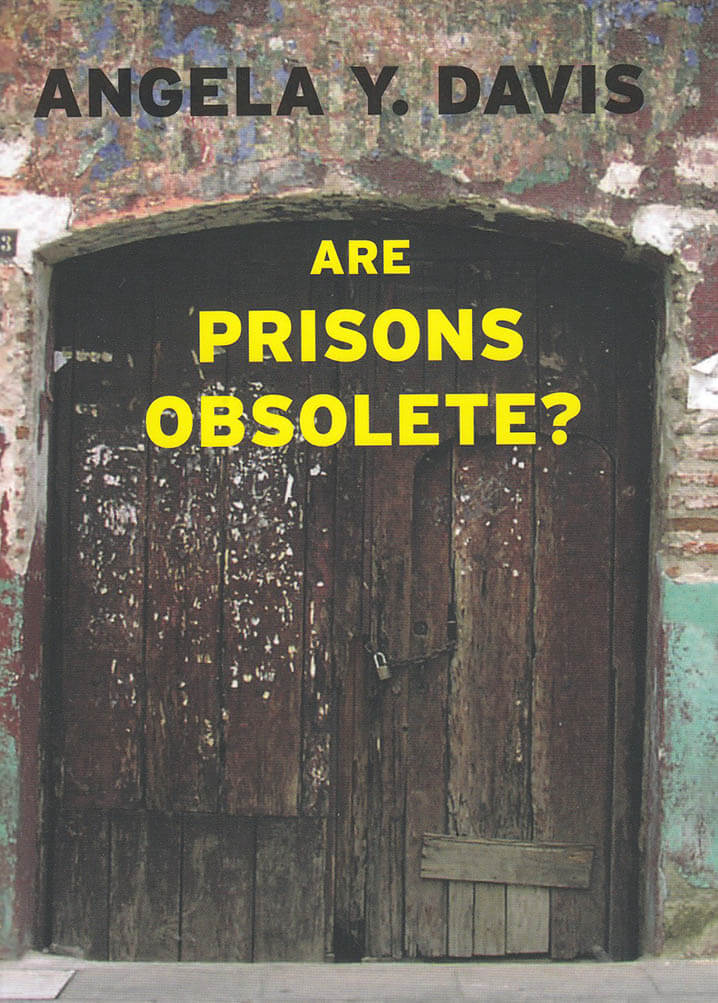Angela Y. Davis
Angela Y. Davis

If They Come in the Morning...
One of America's most historic political trials is undoubtedly that of Angela Davis. Opening with a letter from James Baldwin to Davis, and including contributions from numerous radicals such as Black Panthers George Jackson, Huey P. Newton, Bobby Seale and Erica Huggins, this book is not only an account of Davis's incarceration and the struggles surrounding it, but also perhaps the most comprehensive and thorough analysis of the prison system of the United State.
Since the book was written, the carceral system in the US has seen unprecedented growth, with more of America's black population behind bars than ever before. The scathing analysis of the role of prison and the policing of black populations offered by Davis and her comrades in this astonishing volume remains as pertinent today as the day it was first published.
Featuring contributions from George Jackson, Bettina Aptheker, Bobby Seale, James Baldwin, Ruchell Magee, Julian Bond, Huey P. Newton, Erika Huggins, Fleeta Drumgo, John Clutchette, and others.
And more

Questions to Ask Before Your Bat Mitzvah
Questions to Ask Before Your Bat Mitzvah invites 38 writers, artists, scholars, and activists to offer accessible reflections on 36 questions to help young Jews—and anyone else who picks up this book—feel grounded in the Jewish radical tradition, unlearn Zionism, and deepen their solidarity with Palestinians, offering the B’nai Mitzvah as an opportunity for political awakening open to all. Edited by comedic performance artist and activist Morgan Bassichis with artist and educator Jay Saper and writer Rachel Valinsky, with a foreword by seminal scholar-activist Angela Y. Davis, and illustrations by the artist Nicole Eisenman, this essential volume offers an accessible and challenging set of personal and collective responses to critical questions for our time.
Questions included range from “What even is a Bat Mitzvah?” and “I’m queer/nonbinary/secular/old/not even Jewish—are Bat Mitzvahs for me?” to “Why are there Israeli and American flags in my synagogue?” and “Why do people plant trees in Israel as a Bat Mitzvah gift?” and “What does the olive tree symbolize to Palestinians?” and “What does the watermelon symbolize to Palestinians?” and “What do Palestinian kids do when they turn thirteen?” and “How do I talk to my family about this stuff?”

Columbia Books on Architecture and the City
Paths to Prison: On the Architectures of Carcerality
As Angela Y. Davis has proposed, the "path to prison," which so disproportionately affects communities of color, is most acutely guided by the conditions of daily life. Architecture, then, as fundamental to shaping these conditions of civil existence, must be interrogated for its involvement along this diffuse and mobile path. Paths to Prison: On the Architectures of Carcerality aims to expand the ways the built environment's relationship to and participation in the carceral state is understood in architecture. The collected essays in this book implicate architecture in the more longstanding and pervasive legacies of racialized coercion in the United States—and follow the premise that to understand how the prison enacts its violence in the present one must shift the epistemological frame elsewhere: to places, discourses, and narratives assumed to be outside of the sphere of incarceration.
Paths to Prison: On the Architectures of Carcerality offers not a fixed or inexorable account of how things are but rather a set of starting points and methodologies for reevaluating the architecture of carceral society and for undoing it altogether.
With contributions by Adrienne Brown, Stephen Dillon, Jarrett M. Drake, Sable Elyse Smith, James Graham, Leslie Lodwick, Dylan Rodríguez, Anne Spice, Brett Story, Jasmine Syedullah, Mabel O. Wilson, and Wendy L. Wright.
Published September 2020

Are Prisons Obsolete?
With her characteristic brilliance, grace and radical audacity, Angela Y. Davis has put the case for the latest abolition movement in American life: the abolition of the prison. As she quite correctly notes, American life is replete with abolition movements, and when they were engaged in these struggles, their chances of success seemed almost unthinkable. For generations of Americans, the abolition of slavery was sheerest illusion. Similarly, the entrenched system of racial segregation seemed to last forever, and generations lived in the midst of the practice, with few predicting its passage from custom. The brutal, exploitative (dare one say lucrative?) convict-lease system that succeeded formal slavery reaped millions to southern jurisdictions (and untold miseries for tens of thousands of men, and women). Few predicted its passing from the American penal landscape. Davis expertly argues how social movements transformed these social, political and cultural institutions, and made such practices untenable.
In Are Prisons Obsolete?, Professor Davis seeks to illustrate that the time for the prison is approaching an end. She argues forthrightly for "decarceration", and argues for the transformation of the society as a whole.
Published 2003.